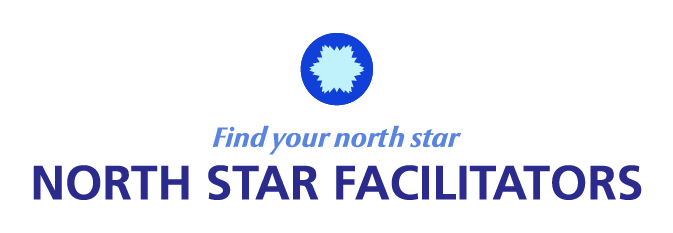Facilitator Economics: Your Top Money Questions Answered

The most common question I get from clients and facilitator colleagues is, “How much do you charge?” Most of us do not like to give a straightforward answer to this question. That is because it is a rather complicated mix of formulas, values, and needs. Our blog below is going to take the format of FAQ (Frequently Asked Questions) around facilitator finances.
Disclaimer: Please keep in mind as you read this that I am talking from my limited experience as a sole proprietor who hires at least 10-12 part-time colleagues every year to work in my business. I am not a giant company. However, I have been successful for 20 years, I take about 8-10 weeks off a year, I am happy and healthy, and I’m having a ton of fun in a field that I feel is extremely meaningful to me!
Q: How much do you charge?
A: First of all I’m going to answer for the simplest situation and call it the facilitator’s base rate. A facilitator who is just starting out in North America might charge between $100-$125 per hour. Their daily rate which would typically include design, delivery and document might be between $1500-$2000 per day. This would be for a relatively straightforward event with 20 or fewer participants. A more experienced North American facilitator typically charges $150-$350 per hour. Their daily rate might be closer to $3000-$5000 per day. But…here are some things to consider that would add to this amount:
- Is the client asking the facilitator to travel a significant distance? i.e. more than 30 minutes to the site? If yes, some facilitators including myself often charge ½ their hourly fee for travel time.
- Is the group larger than 20? As soon as you get a group that is larger than 25, you are adding levels of complexity and the facilitator must put a lot of thought into the processes and chosen activities to make sure that everyone can fully participate. I typically charge 5-8 times more than my basic daily rate when the numbers are between 50-350 participants. For example, I might charge $20,000 for a very large one-day event. This allows me to pay co-facilitators and includes often up to 10 pre-meetings with both the client and co-facilitator team.
- Is there a lot of pre-work required before the event? Recently I helped a group complete their strategic planning and I assisted 5 different subgroups with some pre-event thinking. This can add considerably to the charge as well.
Q: What’s the formula for paying co-facilitators?
A: I’m answering this question as someone who has just been offered a job to facilitate a group and realize they need some assistance with this work. I think this formula could work for internal payments between departments and divisions as well. I learned this formula from “Million Dollar Consulting” by Alan Weiss. Basically it goes like this, if you find or get the job and do all the contracting work, you take 1/3 of the total amount negotiated. Another 1/3 goes to all those involved in designing the event, i.e. all the pre-work. The last 1/3 goes to anyone who delivers the event. Take this formula with a grain of salt. I’ve seen many variations on it. Let me share a story with you about how I’ve used this formula and how I’ve varied from this formula.
Here’s my story…
I was asked to do a job with about 50 participants. The event was being held an hour and half drive from my office. There were multiple levels of complexity and in one day they wanted to have the entire group review more than 10 lengthy documents and make recommendations on how to modify these documents. It sounds like a very dry job but we actually found it incredibly interesting and made it highly interactive for everyone. This was at an organization without major amounts of money. I charged the client $10,000 for every aspect of the job including a lengthy document. In hindsight, this was not nearly enough to adequately pay myself and my co-facilitators. But it was totally worth it. More on this below. This is how I ended up paying my co-facilitators and the decision –making criteria I used to pay them.
Facilitator #1 & #2 essentially received between 22-25% of the total charged to the client. Their invoice was for 27-30% of the fee.
I, the contractor received 52% of the total charged to the client. In fact, based on my total actual hours and expenses, my invoice should have been for 87% of the fee.
BUT…it was totally worth it to me because I got to work with two brilliant facilitators. They carried the lead while I was away at the beginning of the project and I could not have done it or had so much fun without them. I also placed a high value on paying a fair rate. My decision-making criteria for paying my co-facilitators for this event included:
- Could I or even did I want to take this job without the help and thinking of these two colleagues? The answer was no.
- Was I going to earn enough with this job to pay myself at least as much as my co-facilitators if I took exactly the same hourly rate as they were charging? The answer was yes.
- Was I going to have a great deal of fun and learn a lot by having them work with me? The answer was yes.
Q: Can you make a decent living as a facilitator?
A: Of course the simple answer is, yes! There are a lot of factors so let me give you my top 3 formula factors for making a decent living as a facilitator.
- Formula Factor #1 – Your total gross pay needs to cover all your business and living expenses, the taxes you will pay for being in business and ideally have a 20-100% profit factor to reinvest in the business.
- Formula Factor #2 – You will be able to cover all your business and living expenses if you have a good way of marketing your services. The cost of marketing does not have to be huge. Right now I spend about 10% of my gross revenue on marketing related charges. These include paying my colleague, website charges, business entertainment, and other miscellaneous charges. It does not include my travel and professional conferences which are another obvious way to market. If we include these charges it would be closer to 16%.
- Formula Factor #3 – I have consistently found in 20 years that 80% of my gross income comes from 2 services: process facilitation and facilitation related training. However, I’ve learned you need to have a diverse offering of products and services. You do this because sometimes there are economic downturns in your typical client base, the general economy or the public loses interest in one or more of your products or services. A variety of other revenue streams can help generate leads for your more popular services and products. Here are a few types of supplementary services you can offer to keep your income diversified:
-
- Facilitation training
- Mediation/conflict resolution
- Organizational development (OD) consulting
- Change management consulting
- Cultural competency training
- Life, career coaching EQ and/or leadership coaching and training
- Communication and personality profile training
- Mindfulness training
- Motivational speaking
- Topic specific presentations
- IT, project management or business analyst consulting
- Training on Virtual facilitation
- Brain research training
- Certification
- Grant proposal writing
Here are other products I have seen other facilitators offer:
-
- Personality or communication styles profiles
- Webinars or other virtual or on-line training
- Books on related topics
- “How to” manuals, articles or reference material
- “How to” videos
- Subscriptions
- Facilitator tools, props and supplies
- Facilitator software e.g., consensus-building, mind-mapping, etc.
In summary…
The final comprehensive formula for making facilitation work for you financially include…
- A decent charge rate (typically 4-5 times higher than your average hourly salary rate of a an internal employee)
- Supportive group of colleagues who can work with you
- A comprehensive, multi-faceted marketing strategy
- A diverse portfolio of products and services
- Ability to keep investing in your business
- Taking time for fun and collegial exchanges
Helpful Resources





Thank you, this was straightforward and answered my questions. I really appreciate a blog that provides such great free value
Barbara, so glad I found your article. My colleague and I are thinking of starting a business and have talked about it in past. But we feel now is the time. I love the wealth of information you shared here. Just wanted to say THANK YOU!
Dear Ericka, I’m so happy for you and your colleague to be starting a facilitation business. This blog was written quite awhile ago, but hopefully the tips are still useful to you. Feel free to ask more questions as your business launches. If you want more, this package may be somewhat inspiration and we’ll be adding to it in the next few months as well. https://academy.northstarfacilitators.com/bundles/facilitation-practice.
This was helpful, Barbara. Thank you!
I too am starting a new facilitation business and costing is, as you point out, held close to the chest.
Exciting to have folks like you offering resources like this. I’ll be following along!
-Paul
Thanks for all of these tips, Barbara! Helping me out to start a new facilitation business.
Do you post your fees on your website so potential clients can see or do you send along a pdf. once you’re chatting with them or something else?
Thanks! Subscribed and following along.
Excellent info – – -thank you! I work for a large co and we charge extra for onsite facilitation, sometimes client will push back and now Im armed with fuel that our rates are in line (actually less some times) than market.
Glad to read this great article, Barb.
The pricing got me confused for years till I contracted some consultancies at quite fair hour rate without risks. As facilitator/faculty/consultant, I appreciate the consultancy companies bear the risk to work with clients and do all the pre-work. Some of them even have great workshop design already, which leaves me the “easiest” (sometime hardest) job to do – delivery.
Thank you for sharing such useful and helpful information with us.